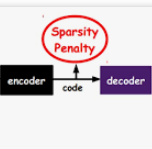We introduce certain sparse representation methods, named as stochastic pre-orthogonal adaptive Fourier decomposition 1 and 2 (SPOAFD1 and SPOAFD2) to solve the Dirichlet boundary value problem and the Cauchy initial value problem of random data. To solve the stochastic boundary value problems the sparse representation is, as the initial step, applied to the random boundary data. Due to the semigroup property of the Poisson and the heat kernel, each entry of the expanding series can be lifted up to compose a solution of the Dirichlet and the Cauchy initial value problem, respectively. The sparse representation gives rise to analytic as well as numerical solutions to the problems with high efficiency.
翻译:我们引入了某些稀疏的表述方法,称为“孔径前随机适应性Fourier分解1和2”(SPOAFD1和SPOAF2),以解决Drichlet边界值问题和随机数据的Cauchy初始值问题。为解决随机数据的随机边界值问题,最初的一步是将稀疏的表述应用于随机边界数据。由于Poisson和热内核的半组属性,扩展系列的每个条目都可以被提升,分别形成Drichlet和Cauchy初始值问题的解决方案。这种稀疏的表述产生了对问题的分析性以及数字性解决方案,效率很高。



